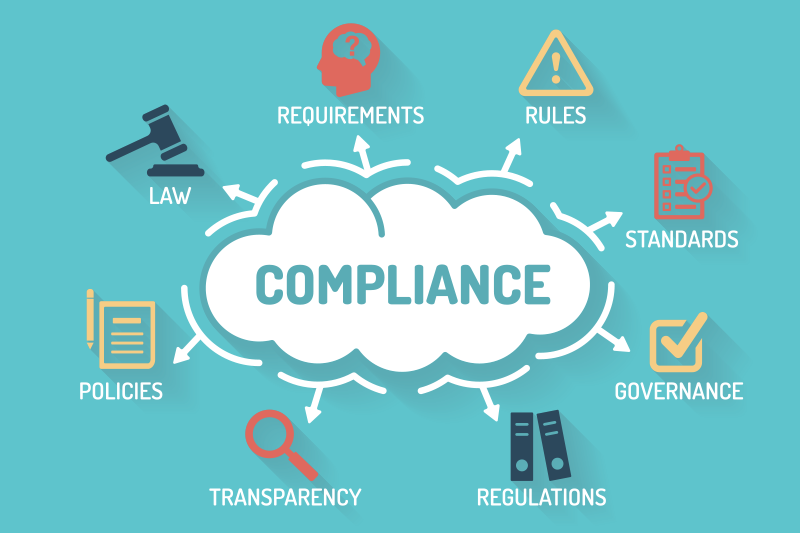Corporate Giving: How to Keep Your Nonprofit Compliant


Swyft Filings is committed to providing accurate, reliable information to help you make informed decisions for your business. That's why our content is written and edited by professional editors, writers, and subject matter experts. Learn more about how Swyft Filings works, our editorial team and standards, what our customers think of us, and more on our trust page.
Swyft Filings is committed to providing accurate, reliable information to help you make informed decisions for your business. That's why our content is written and edited by professional editors, writers, and subject matter experts. Learn more about how Swyft Filings works, our editorial team and standards, what our customers think of us, and more on our trust page.

One of your top priorities when running a nonprofit is ensuring corporate giving. You need that funding to achieve your nonprofit's goals to serve the greater good. Securing donation commitments takes time and energy, but the results can be highly satisfying.
A key factor of a successful 501(c)(3) donation program is complying with local, state, and federal regulations. Various government agencies have requirements that nonprofits must meet before soliciting donations. To keep funding coming in, it's essential to stay up to date with nonprofit compliance requirements.
Why Nonprofit Fundraising Compliance Is Important
A nonprofit accepts donations given in good faith, which means state, local, and federal agencies take compliance very seriously. Such agencies are dedicated to enforcing donation regulations to protect donors and nonprofits from fraud.
Failure to comply with nonprofit gifting regulations can result in costly penalties, fines, and late fees. More seriously, your nonprofit could lose the right to solicit donations altogether. Your tax-exempt status could be revoked and you would likely lose grants and donations. Company leadership can even face civil or criminal action.
Even if you don't lose your right to solicit, failure to comply will stain your reputation, negatively impacting future donations. Donors need to see that your organization is serious about following requirements to the letter. Understandably, companies that donate to nonprofit organizations want to know their money is in responsible hands.
Compliance With State Fundraising Requirements
Charitable fundraising is regulated at the state level, and requirements vary by jurisdiction. Currently, there are 41 jurisdictions requiring registration. Those jurisdictions that don't require registration do call for disclosures. If you conduct business in more than one geographic area, you may need to register in several jurisdictions.
Nonprofit Compliance Registration Process
There are a few necessary steps to obtaining and maintaining compliance registration.
1. Research registration requirements
List all jurisdictions where you collect funds, and find out which ones have filing requirements. Ask about filing fees and determine the supporting documentation you need. Such documentation generally includes IRS Form 990, an IRS Determination letter, and a list of your charity's directors and officers. Fees vary but are typically determined by your prior year's gross revenue.
For more information about registration requirements in your state, go to theNational Association of State Charity Officials.
2. Apply to register
To apply for fundraising compliance registration, you need to fill out an application for each jurisdiction. Depending on the state, you may be able to apply online or by email, fax, or mail. Payment is required when you apply.
3. Wait for a response
You'll receive one of three possible responses — approval, rejection, or a request for more information. If they ask for additional information, respond with the correct info as quickly as possible.
If you're rejected, it's essential to find out why. It could be that you submitted inaccurate information or didn't complete the application correctly. You are required by law to register before you can begin soliciting and accepting donations, so it's critical to learn from your mistakes before applying again.
Of course, the best scenario is that you're approved. Upon approval, make sure to keep good records of any correspondence you receive. You'll need these records when applying for renewals.
4. Renew when compliance registration is due
You must stay compliant to continue operating in good standing as a nonprofit. States have varying renewal periods, so keep up to date as to when each compliance registration comes due.
Renewals tend to be annual or biennial. To renew, you require IRS form 990. You can file an extension if you haven't yet done taxes for the registration year. Your renewal deadline will likely be based on your initial registration date or fiscal year-end date. However, a state's filing date can also change, so it's essential to stay current.
Registration Exemption
Depending on your circumstances, you may qualify for an exemption from registration. An exemption involves submitting an application and other requested paperwork.
There are various reasons why a nonprofit might qualify for an exemption. One is that your organization doesn't have contributions that meet a given threshold. This may be the case if your nonprofit is new and just starting to raise funds. Exemptions also exist for educational, political, fraternal, governmental, healthcare, and membership-based organizations. In addition to an application, exemptions also require that you pay a fee.
Types of Donations and Compliance Requirements
Chances are your nonprofit operates on three main types of funding — grants, matching gifts, and voluntary grants. Each type has different compliance requirements.
Grants
Corporate and challenge grants tend to be the lifeblood of a nonprofit. As such, they come with a long list of compliance rules and regulations. If you don't follow the many rules, your nonprofit may not receive grants.
Corporate grants are often large sums of money. Compliance involves using the money for a specific, predetermined project, such as expansion, building, or scholarships. Corporate grants usually list the specific purpose you can use the grant money for. Part of the compliance process will be proving your nonprofit provides services related to the grant purpose.
Matching gifts
Matching gifts is when a donor promises to match all contributions your nonprofit makes. For example, for every $500 you contribute to a cause, the donor will provide a matching $500 gift. For corporations to match, you'll need to show proof of your501(c)(3) status. You will also have to prove that your business is registered and compliant.
Volunteer grants
While matching gifts involve funds, volunteer gifts involve matching hours of community service work. Volunteers must submit proof of time spent volunteering. After that is complete, a corporation will donate funds based on time spent volunteering.
Keep the Funds Flowing
This may sound like a lot of red tape, but these requirements exist to protect donors and the nonprofit community in general from fraud. Compliance keeps funds flowing to deserving nonprofits and safe from scams and mismanagement. Navigating these little boring bureaucratic steps can help you maintain a stellar reputation, serve your communities, and continue your mission.
To succeed with your nonprofit and help make the world a better place, proper registration of your charitable organization is necessary. That includes setting up your nonprofit professionally. At Swyft Filings, we can help you achieve tax-exempt status by preparing your 501(c)(3) application.
Swyft Blog
Everything you need to know about starting your business.
Each and every one of our customers is assigned a personal Business Specialist. You have their direct phone number and email. Have questions? Just call your personal Business Specialist. No need to wait in a pool of phone calls.







